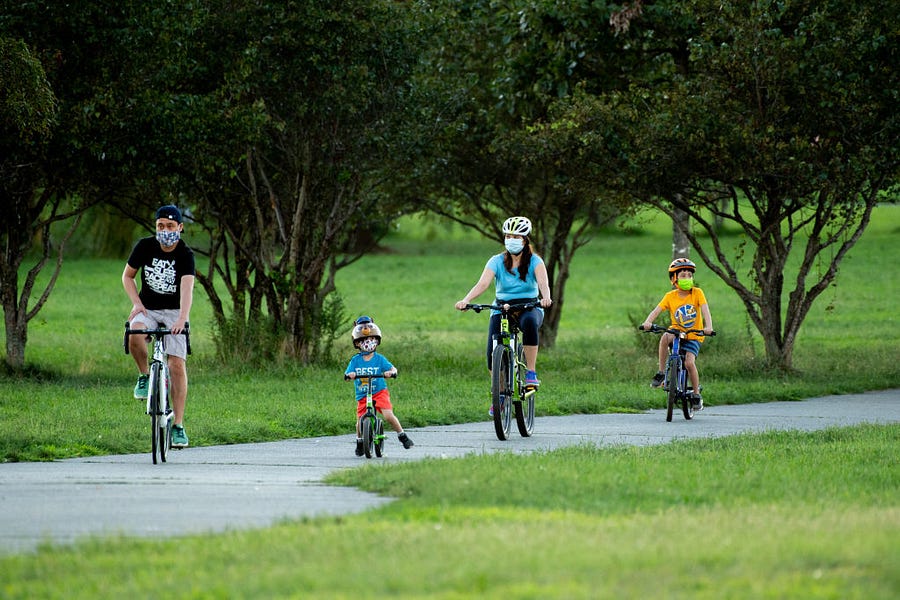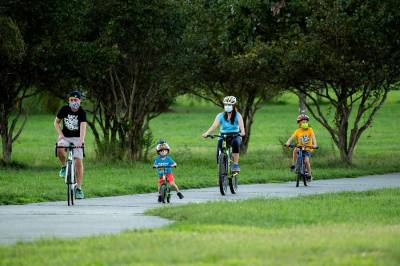With the recent birth of my daughter, a phrase that I heard repeatedly during my time in Germany almost two decades ago has resurfaced in my mind. I realize now just how right the Germans were for invoking it.
The phrase was “kinder and kirche,” and I heard it often when I would complain that so many places were habitually closed on Sundays.
At the time I was a Jewish graduate student visiting Germany with a deep interest in understanding both the Holocaust and German history more generally, and I wanted to explore and experience as much as I possibly could in my limited time abroad. So I was extremely frustrated by the fact that so much was simply shut down. Germans explained to me that Sundays were intended to be spent on families and faith and were not commercial days, a practice stemming from the 1956 Ladenschlussgesetz, or “shop closing law.” From my many experiences and discussions, Germans spent time with their friends and families and in their communities; answering email, just doing a bit of extra work, or shopping were not acceptable. People were expected to be present and to focus on real human connection.
As an American who saw Sundays as a chance to shop, consume, and explore—as was my norm having lived in many places across the United States—this was incredibly vexing—but I was, of course, just out of college. Almost 20 years and two children later, I now see the wisdom of these German ideas, and I wish that we could adopt a similar approach in the United States. Time with children and church helps create deep familial connections, but it also helps create social capital and thus more resilient and strong communities.
Imagine if Sundays were less busy, commerce and work was not as central to our lives for one day a week, and Americans had more time to become more involved with their faith through worship or service. The social benefits could be significant.
New research reveals that these positive externalities are noteworthy and that almost half of Americans who attend services a few times a month or more often believe they are living the American Dream, compared to a little under a third of those attending a few times a year or less often. This is not only a real difference but a clear indication that faith and its community affects our outlooks.
Moreover, the new data reveals that when Americans are asked about the importance of contributing to one’s wider residential community, about one-third of Americans who attend services a few times a year or less often thought contributing to one’s community was essential. In contrast, more than half of those who attend church a few times a month or more often thought communal contributions were essential, an appreciably higher proportion.
In addition to religious institutions helping prime wider community engagement, the data demonstrates that there is a strong relationship between religious engagement and marriage rates—another institution which strengthens communities and families. For those over 26, almost two-thirds who regularly attend religious services are married, compared to just over half who do not regularly attend services. Meanwhile, divorce rates are twice as high among the religiously disconnected than for those who attend services regularly. And regular churchgoers are a bit more likely to have children under 18 living at home compared to those who do not worship regularly, so the impact of participating in religious institutions in strengthening communities via schools and public amenities is apparent again.
That being said, it is critical to note that the benefits of faith are not as widely felt as they have been in the past. Religion is not thriving in Germany at the moment. Like the United States, which has witnessed a huge rise in persons of no faith, as well as a decline in church attendance and membership levels, little more than half of Germans are members of a church today.
However, the benefits of faith for community resilience and development which emerge in the new data here should not be ignored and overlooked. Faith-based organizations serve as places where people can cross boundaries, meet others, share activities, build trust, and help themselves, their families, and others as well. Faith communities have been instrumental in creating new forms of association, fostering trust in shared community initiatives, and motivating particular approaches to questions of social justice. While there are obvious imperfections with faith-based communities, they have anchored many communities and their bonds for generations, and helping them flourish should be a priority.
So as the nation re-emerges from the COVID-19 pandemic and stories of multi-generational families reconnecting with joy flood the media, perhaps now is the moment for policymakers to think seriously about how to promote faith and families and give communities the family- and faith-friendly tools and spaces that they need to engage more deeply and meaningfully if they desire.
Given Germany’s clear line on work and pausing for family—which itself is not without controversy, though a majority of those living in Germany support the continued practice—it is no surprise that Germany is regularly rated far above the United States in terms of the happiness of its citizens.
Of course, Germany is not a case study of perfection. However, policies remain that put families front and center—from parental leave time to childcare guarantees that the United States does not have—and it remains an economic and innovative powerhouse: BioNTech, a German biotech company based in Mainz that develops and manufactures active immunotherapies, partnered with U.S. based Pfizer to develop a lifesaving mRNA vaccine for COVID-19.
As President Biden and many in Congress push for countless new programs and the growth of the government, citizens should at least ask for support around time for faith and family. This is not suggesting that the government should regulate private, personal time—but it is to suggest that resources and places should be enhanced to help make time for kinder and kirche easier for millions of Americans.
The current Biden budget proposal has billions of dollars heading toward reducing inequities in housing and education as well as toward infrastructure and climate change. Biden and Congress should prioritize social infrastructure as well—from forests and gardens to museums, fairgrounds, playgrounds, and libraries—and not wait for future rounds of funding. The federal government should prioritize spaces of connection and socialization—some religious, some secular, some private, some public in our cities, suburban and rural communities—which all help foster connection, community stability and connectivity, and allow both family and faith to strengthen, for this has been the backbone of our nation and communities for centuries.
Samuel J. Abrams is professor of politics at Sarah Lawrence College and a visiting scholar at the American Enterprise Institute.






Please note that we at The Dispatch hold ourselves, our work, and our commenters to a higher standard than other places on the internet. We welcome comments that foster genuine debate or discussion—including comments critical of us or our work—but responses that include ad hominem attacks on fellow Dispatch members or are intended to stoke fear and anger may be moderated.
With your membership, you only have the ability to comment on The Morning Dispatch articles. Consider upgrading to join the conversation everywhere.